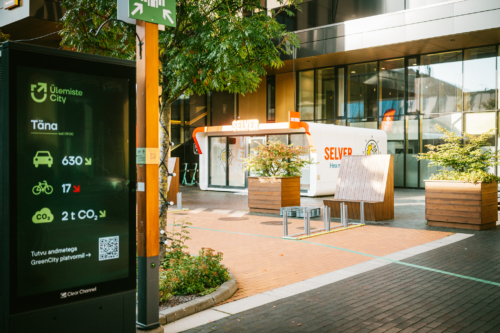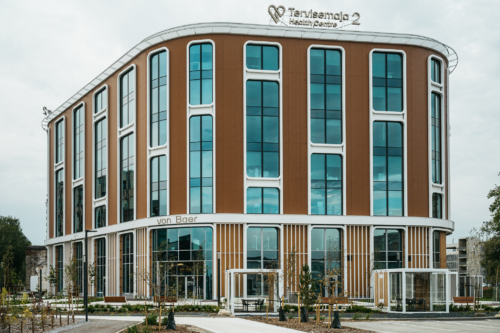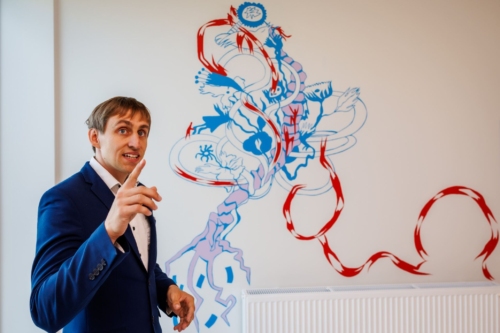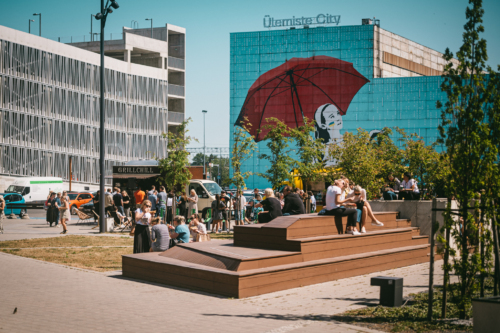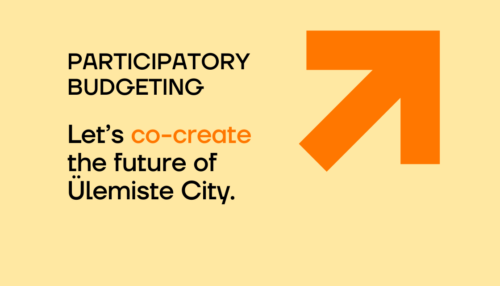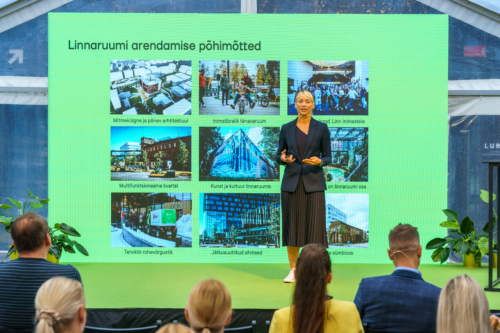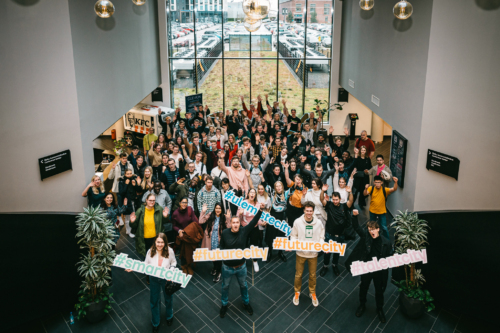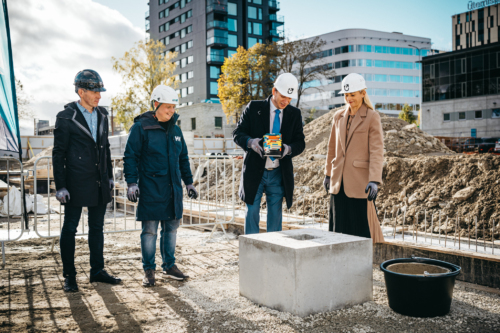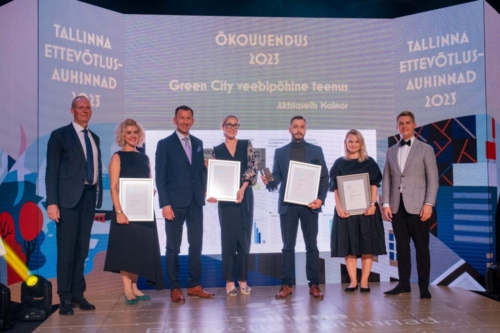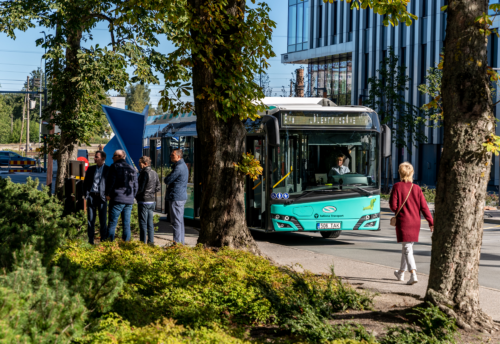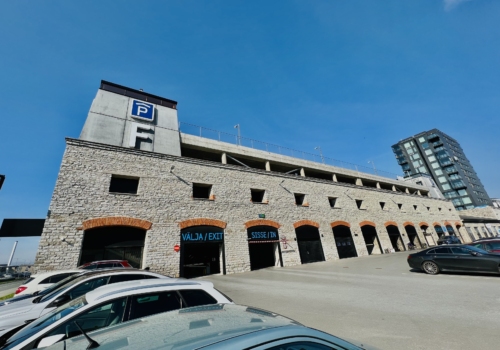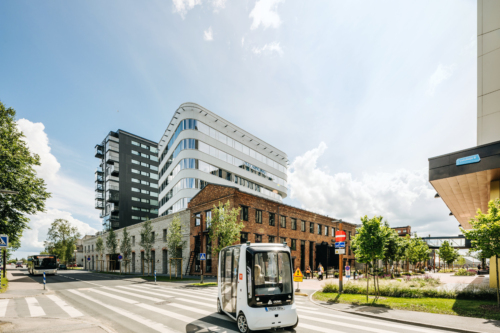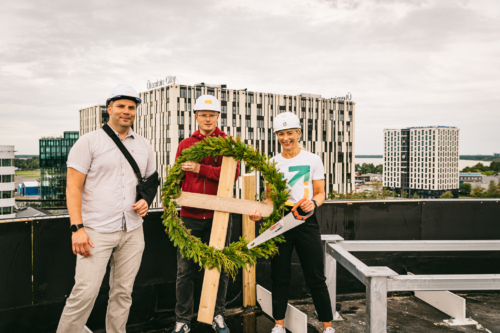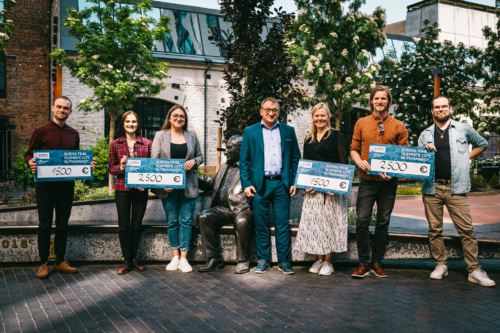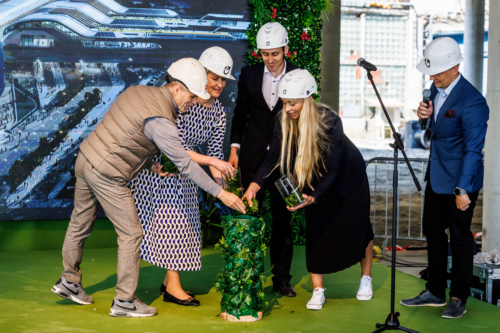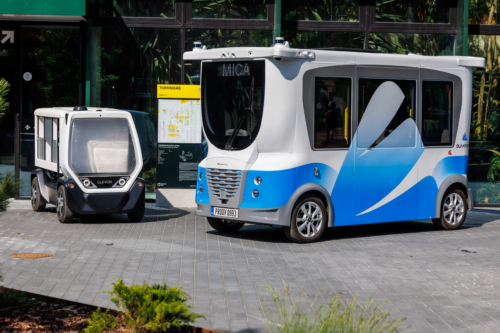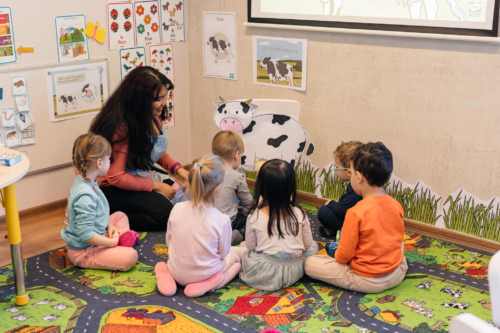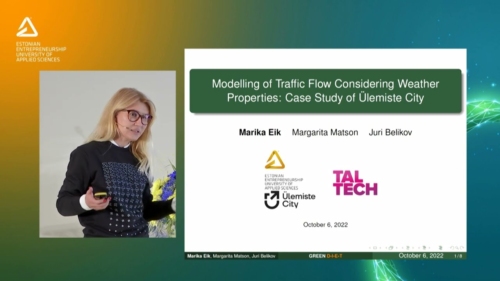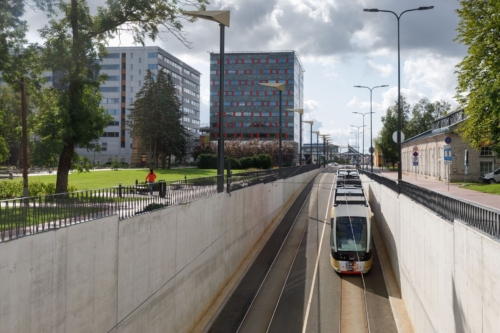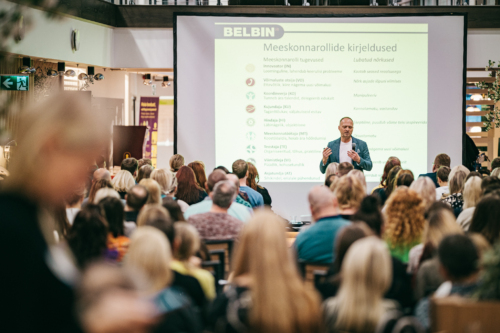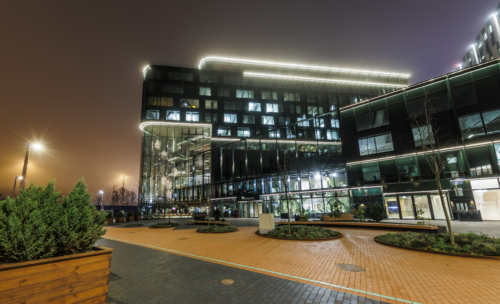The war in Ukraine forces entrepreneurs to adapt but also opens up new possibilities
A recent economic study by Ülemiste City, which houses over half a thousand companies, has found that the COVID pandemic had little effect on their growth environment. Quite the opposite – there was stabile growth in tax revenue, VAT, the number of jobs, and innovation.
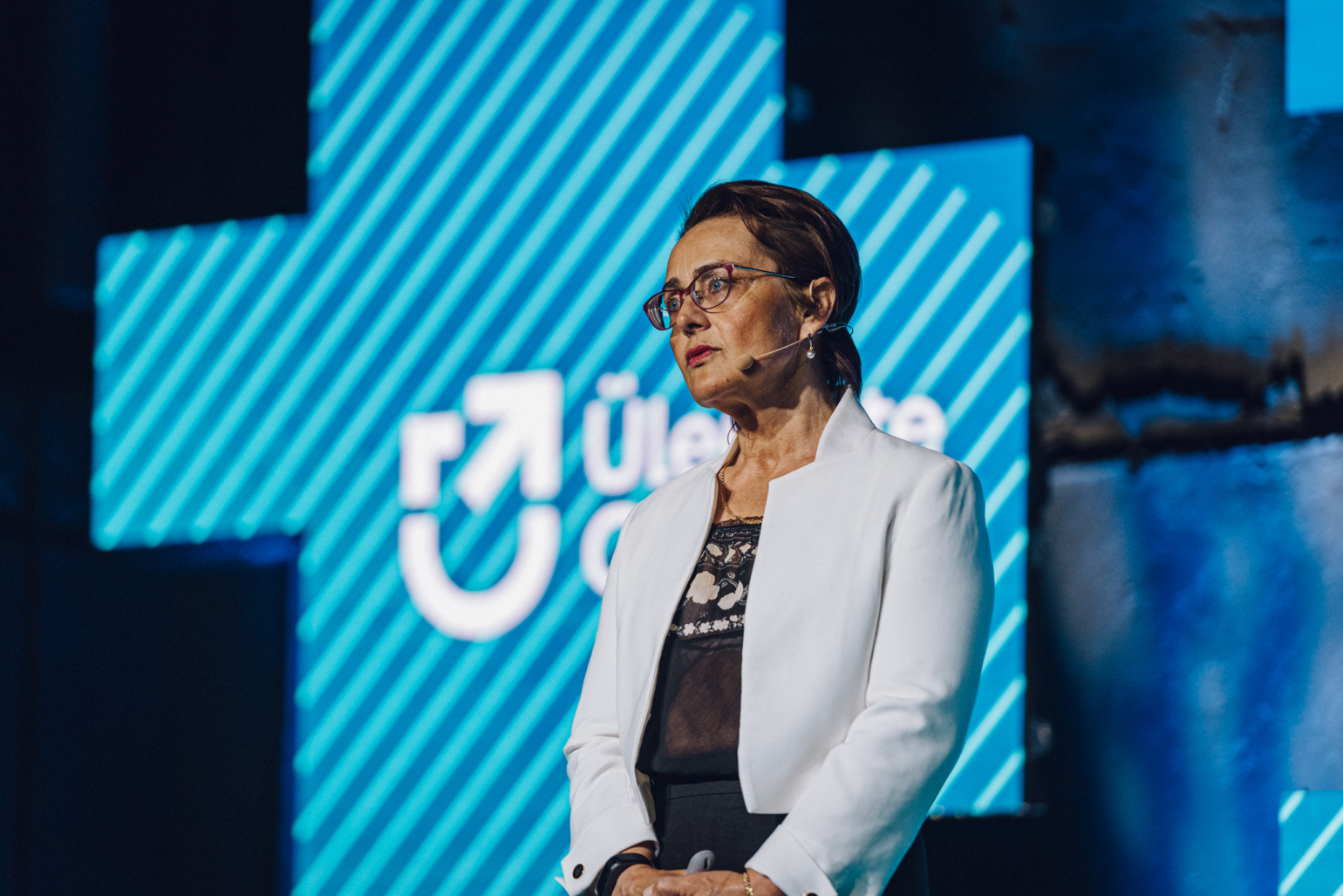
The ones on an especially fast growth spurt were the IT companies of the Baltics’ biggest business park. Maris Viires, CHRO of software solution company Helmes, made no secret of the crisis having created new opportunities, despite the need to adapt to a changed work environment.
How, though, will the present and future of the business sector be affected by Russia’s aggression in Ukraine and the inevitable impact on the global economy?
From software developer to crisis help center
Ivo Lasn, director of Playtech, Estonia’s biggest software development company, named the global job market situation as the sector’s biggest factor. „The competition’s not declining and we all have a constant need for qualified specialists. Suddenly, however, around 100 000 experts disappeared from the global job market. We were not directly affected by it, but I’ve understood that this uncertainty also caused fear when it came to investing in Estonian projects and companies – a fear that has thankfully passed now,“ told Lasn.
Having offices in more than twenty countries, Playtech was forced to launch an extensive rescue operation for the 720 workers of the Ukrainian office (and their families). „It’s as if we transformed into a crisis help center. To this day, we’re taking care of our people’s food, medication, logistics, housing, psychological aid, and everything else we could possibly do to protect their lives and health. We have a constant overview of everyone’s location. We involved volunteers from various countries and bought a bus in order to have minimal dependency on the overall situation,“ said Lasn, describing the weeks of unrest. „Today, 90% of the Ukrainian office can continue work in full capacity – carrying on as much as possible has also been recommended by the local government.“
Lasn does not believe that the local ICT sector will be remarkably reshaped or slowed down by the major war. „Last year, labor taxes from the tech sector grew from 426 to 519 million euros, it was more than half that amount the previous year. Meaning that there’s no stability in the short term, but either way, it’s more important to perceive trends in the long run and the growth will undoubtedly continue.“
February 24 changed everything in the metal Industry
However, the daily life of Heavy Industry Estonia, a metal company in Ülemiste City, changed completely on February 24. Board member Vahur Reimets notes that being connected to vastly different industries, the company’s construction, supply (90% of the production output is exported), and manufacturing activities have changed beyond recognition during the last few months.
The Ukrainian workforce made up 10% of our personnel. Today, the number is 0,“ bemoaned Reimets. „Our Ukrainian men quit their jobs the day the war began – some went to war, some went to their families. Since our production demands very specific professional skills, it’s practically impossible to find quick replacements.“
In addition to that, industries have been hit hard by the lightning speed increase in metal speed and the lack of material. „In certain product groups, the price has increased threefold. Thus, all price offers had to be reviewed and deals were made with the clients on entirely new grounds. Supply chain deadlines are completely unpredictable. Nobody can guarantee the availability of material. All of this means constant extra work in a situation where planning production and other processes is practically impossible,“ said Reimets, describing the new reality.
Reimets says outright: the company’s fate depends on whether they can survive the day. „Changes this large and sudden cannot be preplanned in any way. We are actively working on finding alternatives – for example, the energy suppliers’ market is being reshaped and we could find some new solutions there.“
Meanwhile, Reimets is waiting for the government to take action similar to the COVID pandemic outbreak, during which the business sector was given a fast and thought-out helping hand. „I understand that this situation is unexpected and difficult for the state apparatus as well. However, at the end of the day, our companies are furthering Estonia’s economy and filling up the state tax coffers. A clearer understanding of the expected aid could help entrepreneurs make decisions and plan for the future.“
European leaders are scaring away investors
Enn Õunpuu, founder and CEO of another international company, fuel cell manufacturer Elcogen, emphasizes the underlying meaning of the increase in energy prices and the cooling of the investing climate.
„War is inevitably going to raise energy prices, which in turn raises the prices of our products and lowers competition in US and Asian markets,“ described Õunpuu. „The foreign investors’ positive attitude towards the Baltic states has been replaced by a waiting game as various European leaders have stated that this area could be the next target of a Russian attack.“
However, when evaluating Elcogen’s market position, Õunpuu sees a large opportunity because the EU is the leader in renewable energy and has prioritized Elcogen and others’ fuel cell technologies when creating a hydrogen-based society. „Since Russia’s fuel needs a replacement and a green hydrogen based solution is the only sustainable one, the war in Ukraine will only further fasten the green transition in the energy industry.“
According to Õunouu, the corona pandemic and the war crisis have had reverse effects. „For us, COVID meant that clients in Europe and Asia closed their doors to prevent the spread of the virus. The war, however, has created a larger discussion over alternative solutions to Russian fuels and the need for green energy and energy security has also been increasingly acknowledged,“ he noted. „We are making use of the opportunities for growth and international expansion – for example, we’re planning on hiring close to 200 engineering experts in the next few years.“
Growth environment develops companies and society
Although it’s impossible to predict the economic, social, and environmental impact of the war, Estonia’s innovative and flexible business environment can hope for the best, remarks Kadi Pärnits, chairman of the board of Mainor AS which is developing Ülemiste City.
„Many Estonian, but also most of Ülemiste City’s companies have made considerable investments into research and development during 2021-2022. The technology and smart Industry sector continues to grow even during the toughest of times. Their potential does not disappear overnight. In developing new technologies and services, there is increased emphasis on providing smarter opportunities for clients, but also on decreasing the environmental footprint of the production and their actions,“ says Pärnits.

